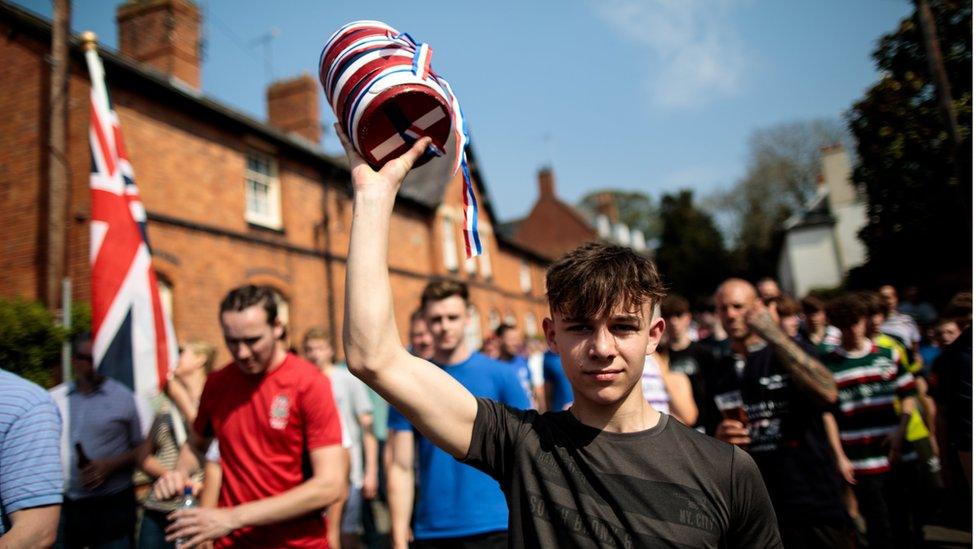Ancient rocking ceremony marks revival centenary
- Published
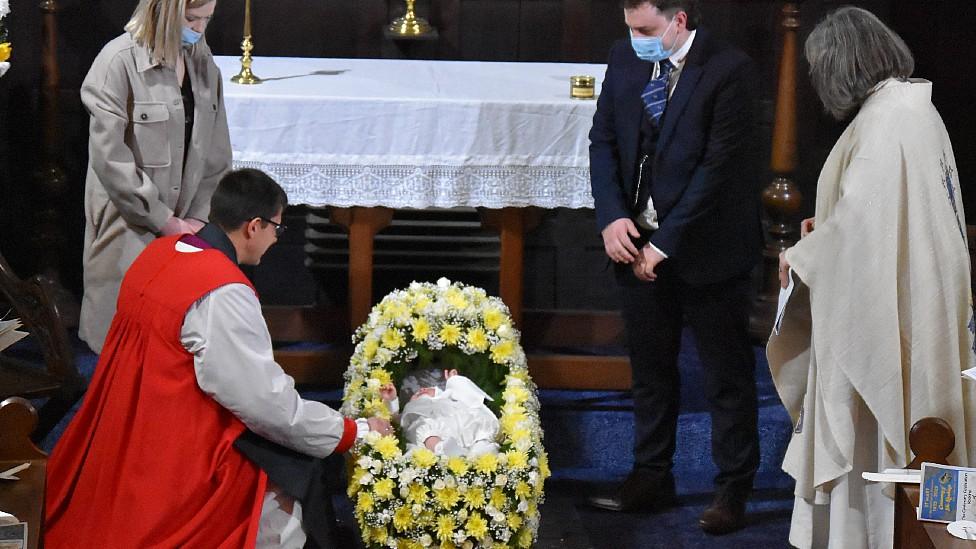
The child in the village born closest to Christmas is chosen for the rocking
One of the rarest religious ceremonies in England - once banned due to drunkenness and violence - has taken place, a century after it was revived.
The Rocking ceremony, held at St Mary of the Purification in Blidworth, Nottinghamshire, marks when baby Jesus was taken to the temple in Jerusalem.
At least 400 years old, it was stopped in the 1600s due to excessive drinking and was linked to a fatal duel.
The traditional ceremony was revived in 1922.
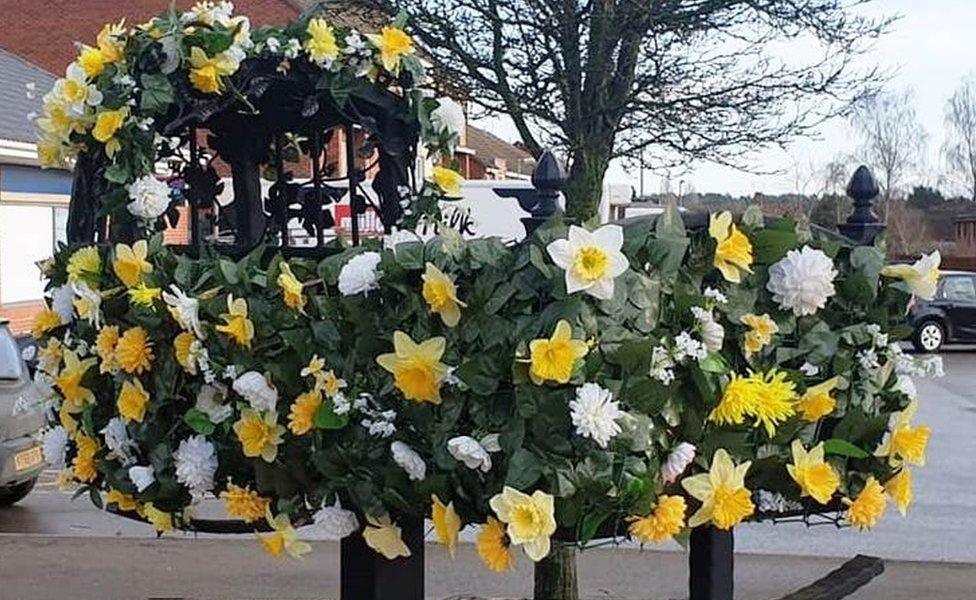
A permanent sculpture of the cradle stands at the centre of the village
The Reverend Zoe Burton said: "The whole village gets really excited about this and gets behind this celebration.
"It's something special because we believe we may be the only church which is doing this."
The ceremony helps tell the story in the Gospel of Luke when Joseph and Mary went to the temple for Mary's ritual purification and to perform the redemption of the first born.
It sees the village child born closest to Christmas rocked in a flower-covered cradle donated to the church 100 years ago.
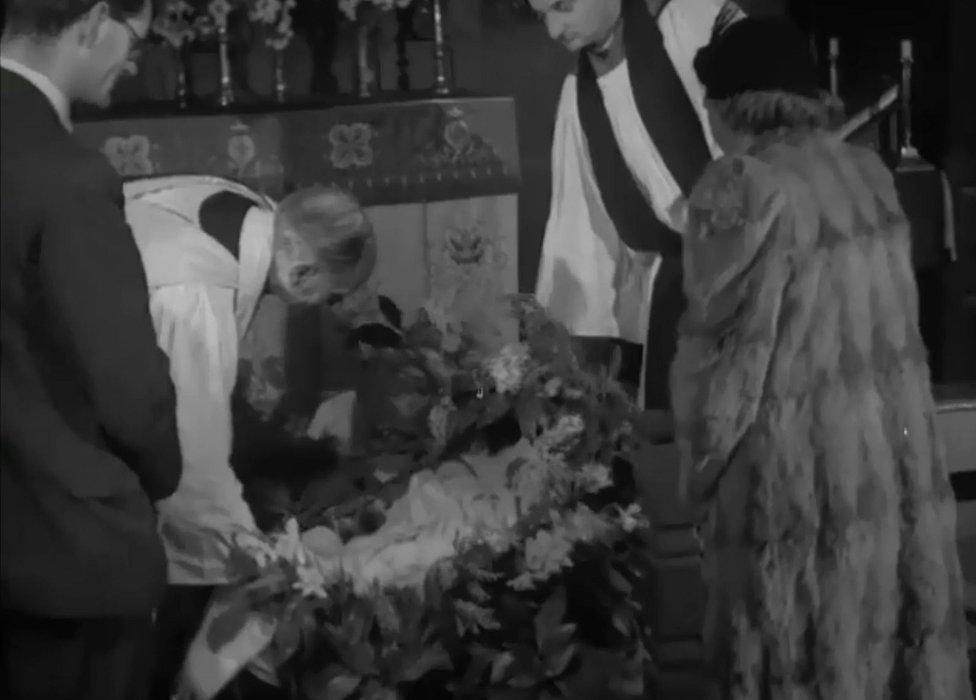
The BBC covered the tradition in 1952, when furs were still de rigeur
This year the baby was Francis, born on 22 December, and to mark the centenary the Bishop of Sherwood, the Right Reverend Dr Andy Emerton, rocked the cradle.
All those rocked get their name inscribed on a board on the church wall and there is a cast iron cradle in the centre of the village to commemorate the tradition.
The tradition is most strongly associated with German-speaking parts of central Europe where it is known as Kindleinwiegen and dates back to the 12th Century.
In Blidworth the ceremony became a major social event but high spirits boiled over in 1598 when one Thomas Leake was killed in a duel over the local publican's daughter.
In 1842 the tradition was briefly revived but it was re-established more permanently in 1922.
The centenary has been marked by a number of events including a concert.

Follow BBC East Midlands on Facebook, external, on Twitter, external, or on Instagram, external. Send your story ideas to eastmidsnews@bbc.co.uk, external.
Related topics
- Published23 December 2020
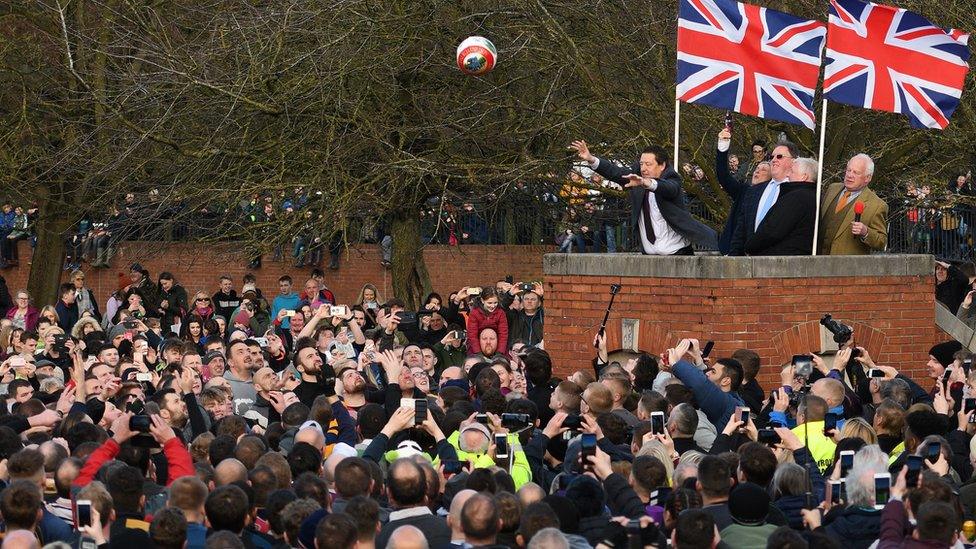
- Published23 April 2019
